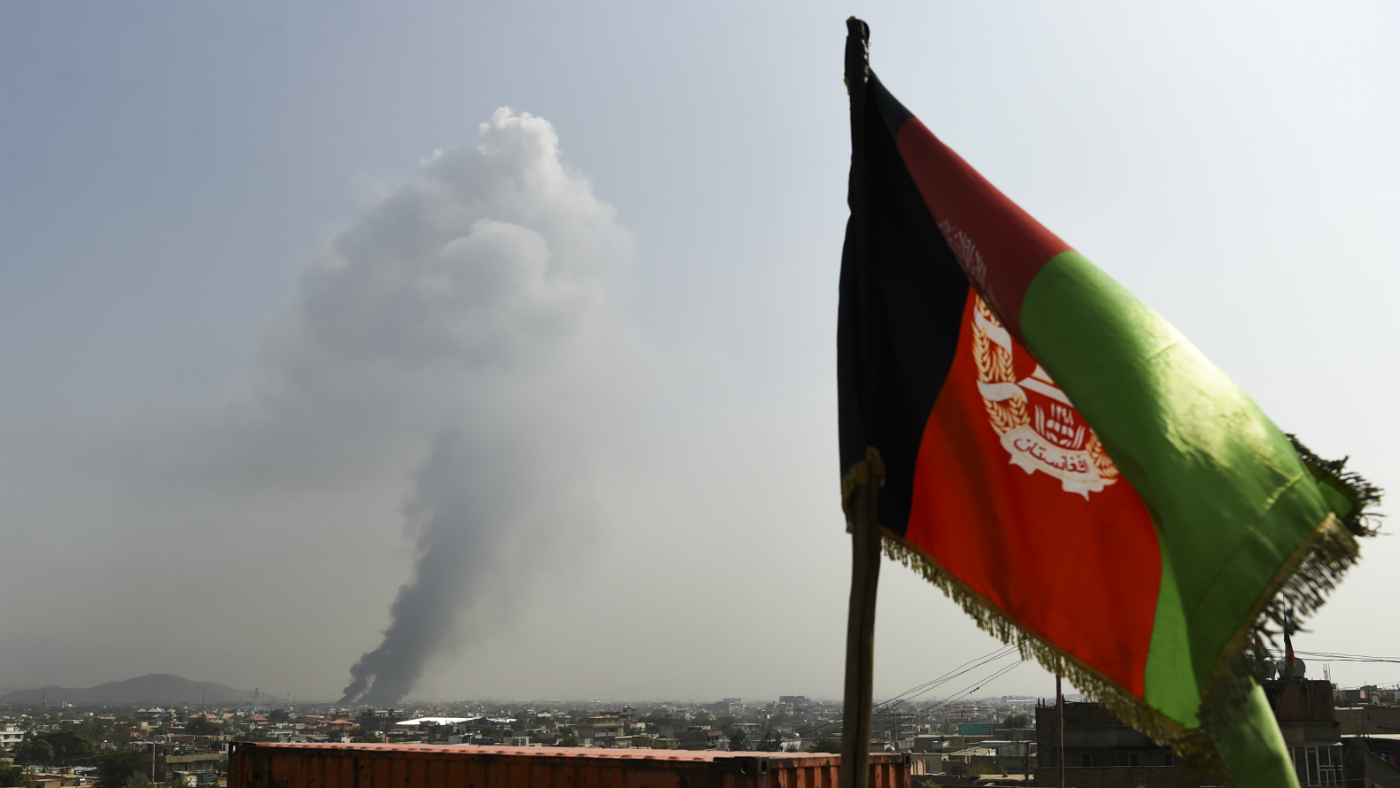Why is the UK being accused of covering up war crimes?
Investigators claim serious crimes were hushed up ‘for political reasons’

A free daily email with the biggest news stories of the day – and the best features from TheWeek.com
You are now subscribed
Your newsletter sign-up was successful
The British government and the military covered up significant evidence of war crimes by soldiers in Afghanistan and Iraq, according to reports by the BBC and The Sunday Times.
An investigation found that military detectives unearthed evidence of serious incidents involving innocent civilians, but that senior commanders hid the alleged war crimes “for political reasons”.
The reports have given rise to calls for the International Criminal Court to intervene and investigate the disclosures.
The Week
Escape your echo chamber. Get the facts behind the news, plus analysis from multiple perspectives.

Sign up for The Week's Free Newsletters
From our morning news briefing to a weekly Good News Newsletter, get the best of The Week delivered directly to your inbox.
From our morning news briefing to a weekly Good News Newsletter, get the best of The Week delivered directly to your inbox.
What is alleged to have happened?
Among the allegations are claims that a soldier in the elite SAS unit murdered three children and a young man in Afghanistan.
It is claimed that the soldier shot the four civilians in the head at close range while they were drinking tea in their home in October 2012.
The investigation also found claims of beatings, torture, and sexual abuse of detainees by members of the Black Watch infantry unit. It is further alleged that there was widespread abuse of prisoners in the summer of 2003 at Camp Stephen, in the Iraqi city of Basra, leading to at least two deaths in custody.
A free daily email with the biggest news stories of the day – and the best features from TheWeek.com
Another crime looked into by the investigators was the fatal shooting of an Iraqi policeman in August 2003. It is suggested that this was covered up based on a soldier’s witness account, with the soldier later saying that evidence was fabricated without his knowledge.
The Sunday Times reports that military detectives uncovered allegations of falsified documents that were “serious enough to merit prosecutions of senior officers”.
An investigator told the BBC: “The Ministry of Defence (MoD) had no intention of prosecuting any soldier of whatever rank he was unless it was absolutely necessary, and they couldn’t wriggle their way out of it.”
Responding to the claims, the MoD said that the allegations were “untrue”, adding that the decisions made by prosecutors and investigators were “independent” and involved “external oversight and legal advice”.
Foreign Secretary Dominic Raab, who worked on war crimes policy as a lawyer in the Foreign Office before entering frontline politics, told the BBC that despite the lack of any prosecutions, it had “got the right balance” in making sure that “spurious claims” were not pursued.
What will happen next?
The revelations could result in a war crimes investigation at the International Criminal Court, if the UK is deemed to have failed to hold its military forces to account. The ICC is obliged to act when countries fail to hold military forces to account for breaches of the Geneva Conventions.
There are also calls for an independent, judge-led inquiry.
The BBC said this morning that the ICC “would independently assess the BBC's findings and would begin a landmark case if it believed the Government was shielding soldiers from prosecution”.
–––––––––––––––––––––––––––––––For a round-up of the most important stories from around the world - and a concise, refreshing and balanced take on the week’s news agenda - try The Week magazine. Get your first six issues for £6
What has the reaction been?
Lord Macdonald, a former director of public prosecutions, said “it’s absolutely reprehensible for politicians to take it upon themselves to interfere in investigations into crimes this serious, and to close those investigations down before they’re complete”.
But Hilary Meredith, visiting professor of law and veterans’ affairs at the University of Chester, who has represented several soldiers facing similar allegations, said: “This so-called new evidence has no credibility whatsoever. It is flawed, baseless and biased.”
The BBC added that the ICC is “taking the allegations very seriously”.
Chas Newkey-Burden has been part of The Week Digital team for more than a decade and a journalist for 25 years, starting out on the irreverent football weekly 90 Minutes, before moving to lifestyle magazines Loaded and Attitude. He was a columnist for The Big Issue and landed a world exclusive with David Beckham that became the weekly magazine’s bestselling issue. He now writes regularly for The Guardian, The Telegraph, The Independent, Metro, FourFourTwo and the i new site. He is also the author of a number of non-fiction books.